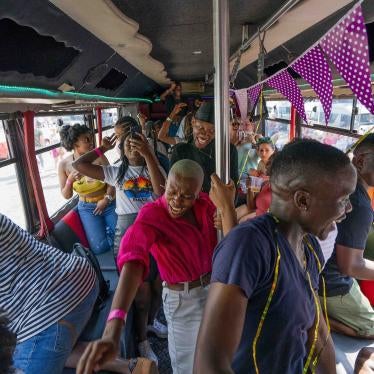On 3 March, Australia's Foreign Minister Julie Bishop said, 'We must use the celebration of International Women's Day to highlight the plight of women still fighting for freedom and equality, for when that is achieved it will be for the betterment of us all.'
That fight is ongoing in the Asia-Pacific region. While women around the world celebrated International Women's Day on 8 March, in China, state security forces took into custody at least 10 women activists in three cities - five remain detained. Their crime? Organising a nationwide campaign to distribute stickers and leaflets protesting sexual harassment on public transport. As incongruous as it sounds, during the week China's National People's Congress meets in Beijing, the authorities' tolerance for any perceived criticism or dissent is zero.
But China is not alone in jailing women who speak out. When I visited Cambodia last November, I attended the trial of seven women activists arrested only the day before, who had protested the city's inaction when their neighborhood in Phnom Penh flooded. The trial was a farce. After barely two hours, the court convicted the women for blocking traffic and sentenced each to a year in jail.
Last July, women's rights activists in Chin State protested against sexual violence by Burmese military authorities in Burma, and were charged with staging unauthorised public protests. And Burmese women who have campaigned against discriminatory marriage laws have faced threats and intimidation.
Twenty years ago, women activists gathered in Beijing for a historic conference to develop an agenda for women's empowerment – the 'Beijing Platform for Action.' Women across the Asia-Pacific region have made great strides in those two decades, achieving greater gender equality in employment, education and politics, progress in addressing domestic violence and a new treaty extending protections to domestic workers. Yet they still face multiple challenges of discrimination and violence.
The region's women are standing up for their rights in larger numbers than ever before, yet they they struggle against backward-thinking governments, religious authorities and extremist groups. They need support from governments such as Australia's to speak out when their rights are under threat.
It's in Australia's best interests to ensure that women's voices are heard and not silenced. Bishop should follow-up on her International Women's Day pledge by turning her general appeal into specific calls for action: pressing for the release of women activists detained in Burma, Cambodia and China would be a good place to start.









